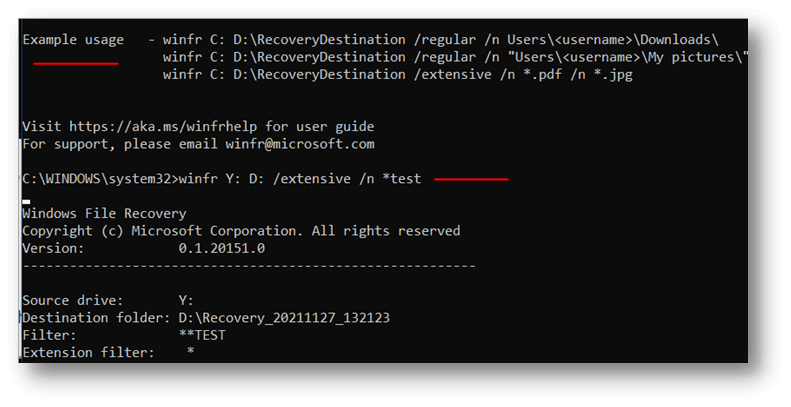PAGE CONTENT:
Your need to reinstall Windows might be due to a variety of factors. The benefits include faster computer speeds, less downtime due to system faults, and removing viruses. However, there are situations when it is necessary to reinstall Windows, and doing so will always result in some lost data.
Is there a way to get my files back after reinstalling Windows 11? Don't stress out. In this post, we'll discuss the strategies for recovering lost data after a reinstall of Windows 11.
File Recovery After Reinstalling Windows 11
If you need to restore files after reinstalling Windows, use one of the following methods:
🔖Use Windows Backup File History
Use a data recovery tool if you don't have a recovery option. When you use Windows File History to create a backup of your important files, you can easily restore them using the aided restoration feature. Here are the actions to take:
- Select "Update & Security" from the "Settings" option.
- Select the "Backup" option to locate your backup.
- Go to "Back up using File History" and choose "More choices."
- Click the "Restore files from a current recovery" button in the "Related settings" section.
- Browse through a file's iterations using the arrows after you've located it. Restore lost data from a File History backup after reinstalling Windows.
- Select the desired version and then click "Restore" to return it to its original state.
You may change where it's saved by right-clicking "Restore," then clicking "Restore to," and finally choosing a new location.
🔖Use System Restore Point
An older version of the files may be retrieved via backups or by using a restore point. When your computer detects a change, it immediately generates the file for you. Never back up data on the same disk that hosts Windows.
All your files will be lost if you format or reinstall Windows. Therefore, it is suggested that you save files to different partitions on your computer or to an external hard drive, DVDs, or CDs. If you want to restore files using a System Restore Point, do as instructed below.
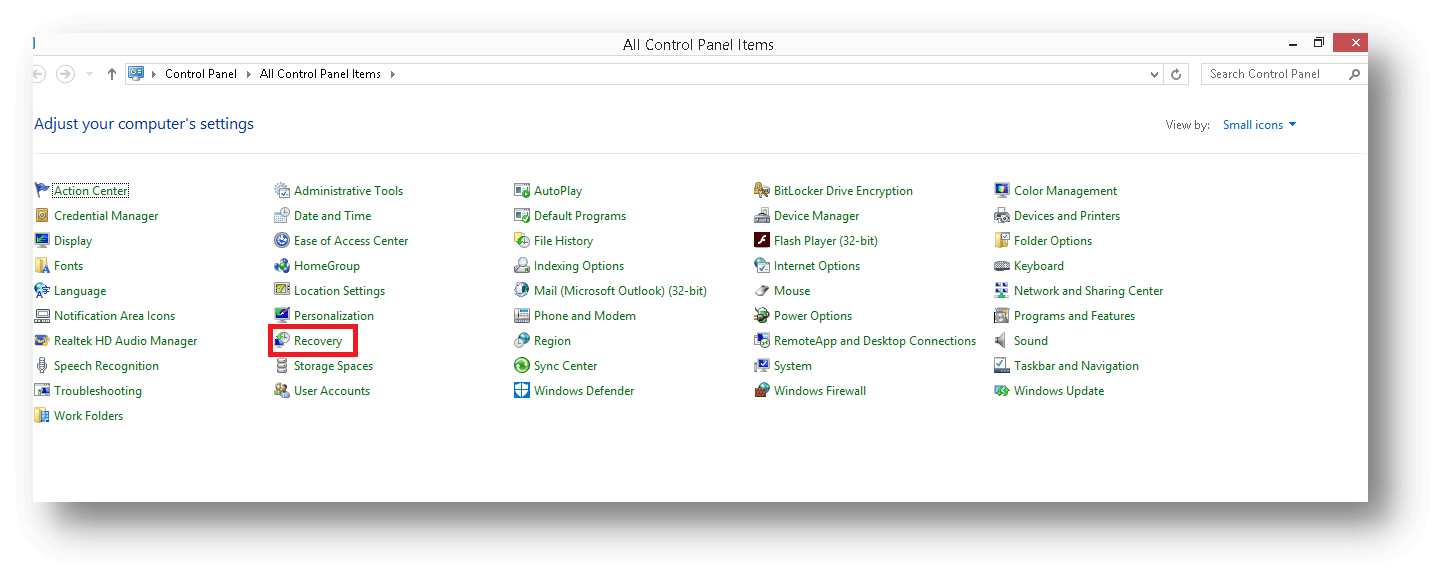
- Open the Control Panel and choose Recovery.
- Pick the restoration point, continue by clicking Next, and then finish.
Note: Make sure that your security settings are enabled. Click Configure System Restore, then Configure, then Turn ON.
🔖Use Windows File Recovery
Microsoft's free data recovery software has two distinct ways. The standard mode is for recently deleted files, whereas the extended mode is for formatted ones.
Following are the steps to start the process:
- Initiate the process by downloading the Windows File Recovery program from the Microsoft Store. To start, launch the program.
- A command prompt will appear once you launch the software; from there, you may learn how to use the winfr command. Data may be retrieved from the Y disk to the D drive using the following command: winfr Y: D: /extensive /n *test
![fix data loss due to reinstalling Windows 11]()
- Will there be a continuation (y/n)? You must press the "y" key and the "enter" button in this case. In a while, you'll get a prompt reading, "View recovered file (y/n?) When you press y and enter, you'll see the results.
The procedure will not continue if the command is not written correctly.
Recover Lost Data after Windows Reinstall without Backup
The upgrade to Windows 11 may have wiped the files, so if you can't locate them, they no longer exist. Donemax Data Recovery Software is an effective tool for retrieving deleted/formatted files from any storage medium. If you've lost data due to reinstalling Windows OS, follow the instructions below.
Step 1. Download and install Donemax Data Recovery.
Click Download button below to download Donemax Data Recovery, then install it on your Windows PC, and open it.
Step 2. Choose a disk on your local machine.
Donemax Windows Data Recovery's main interface, seen below, has sections for Devices and Drives as well as Common Positions after installation and launch. To proceed, choose the disk from which you experienced data loss and press Scan.
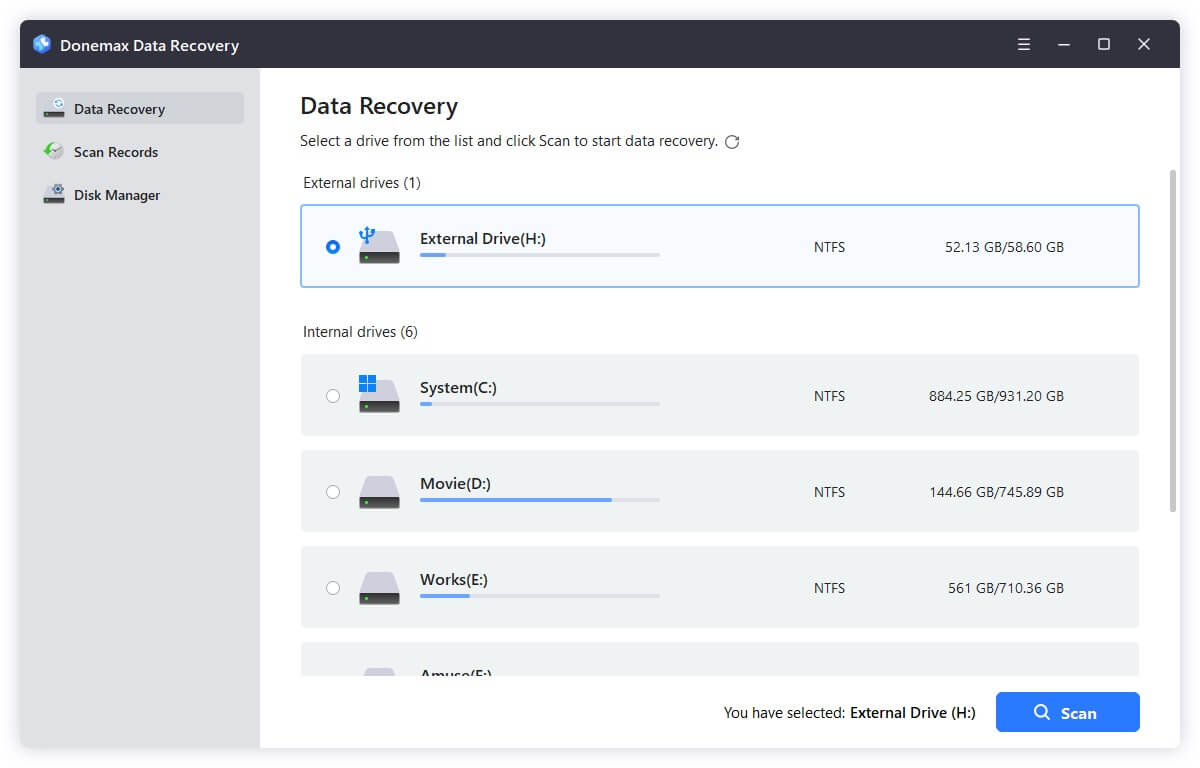
Step 3. Scan the hard drive.
Donemax Data Recovery performs a rapid, comprehensive scan of the selected hard disk to recover the missing data. As Donemax Data Recovery finds erased files on the disk, Tree View and File View capture the filtered items.
You may see the final result, which details the total number of successful documents.
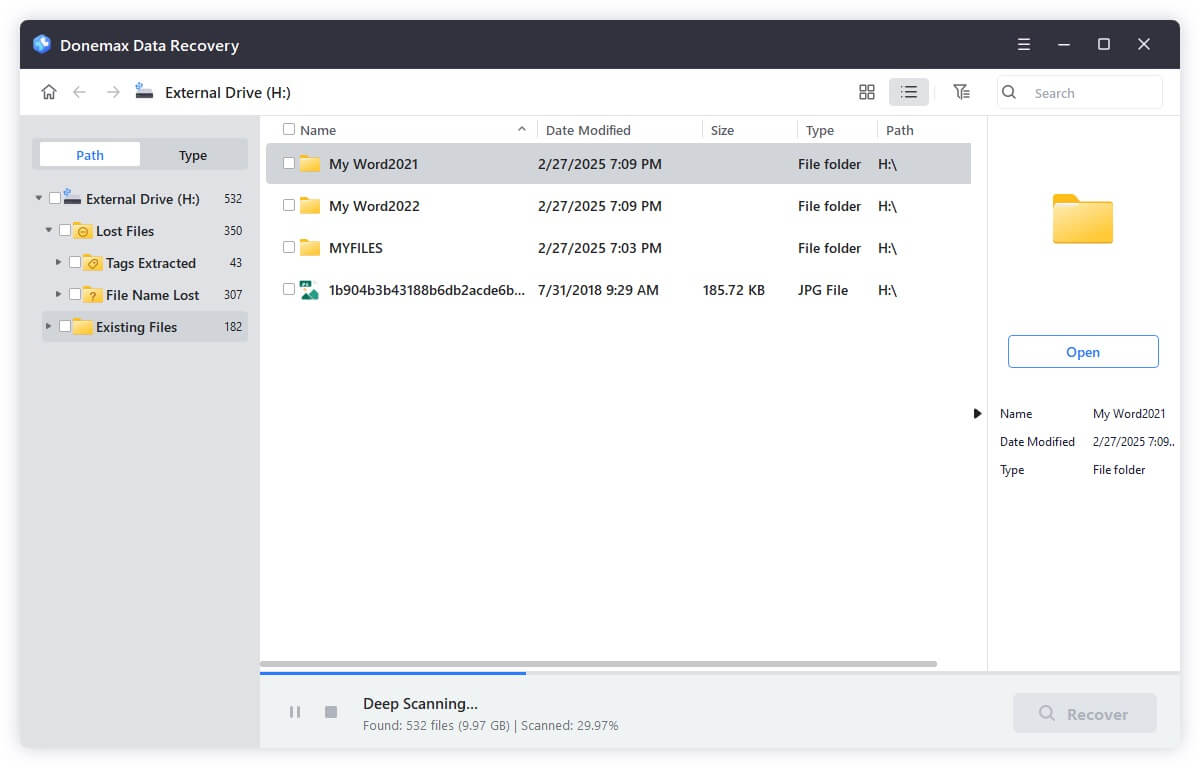
Step 4. Recover the files.
The Donemax Data Recovery program can detect and retrieve several file formats, including images, audio files, video files, documents, and archives. To retrieve them from your hard disk, choose Recover. When you choose this option, a dialogue window will appear asking where you'd want to restore the files. To snap, choose the area and press OK.
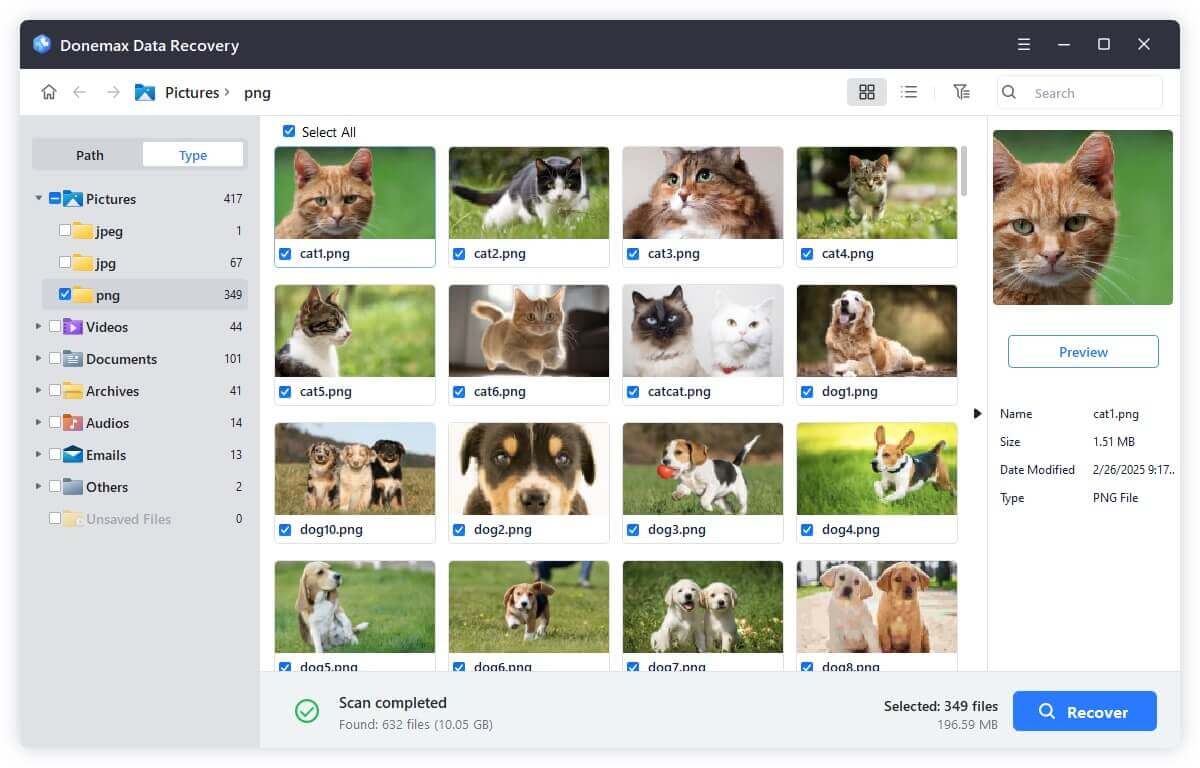
Conclusion
Some files may become inaccessible after upgrading the framework to Windows 11. The Windows 11 upgrade might have either shifted your files to a different location on your hard drive or wiped them entirely.
The issues of how to retrieve deleted data after reinstalling Windows 11 are addressed on this website. If you haven't made a backup or created a system restore point, your only hope of retrieving deleted data is the Donemax Data Recovery Software.
Related Articles
- Sep 26, 2024Fix WD External Hard Drive is Unreadable on Mac
- Dec 23, 20247 Solutions to Fix 'Cannot Reinstall macOS' – Troubleshooting and Solutions
- Jan 22, 2025Fix The Device Is Not Ready Issue – A Complete Guide
- Mar 01, 20259 Solutions to Fix SD Card Not Detected on Windows 11/10/8/7
- May 28, 2025[9 Fixes] Fix External Hard Drive Not Accessible on Windows 10
- Apr 07, 2025[6 Fixes] Fix Hard Drive Partition Shows 0 Bytes Error on Windows 11/10/8/7

Lucien
Lucien is a writer and a chief programmer of Donemax software who has worked in the company for 5+ years. He has written much of the content on the site and devotes to providing troubleshooting and solution for Windows and Mac users including disk cloning, data recovery, migration, eraser, error fixes.

Gerhard Chou
In order to effectively solve the problems for our customers, every article and troubleshooting solution published on our website has been strictly tested and practiced. Our editors love researching and using computers and testing software, and are willing to help computer users with their problems
Hot Donemax Products
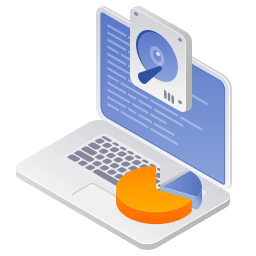
Clone hard drive with advanced clone technology or create bootable clone for Windows/Mac OS.

Completely and easily recover deleted, formatted, hidden or lost files from hard drive and external storage device.

Certified data erasure software - permanently erase data before selling or donating your disk or any digital device.
